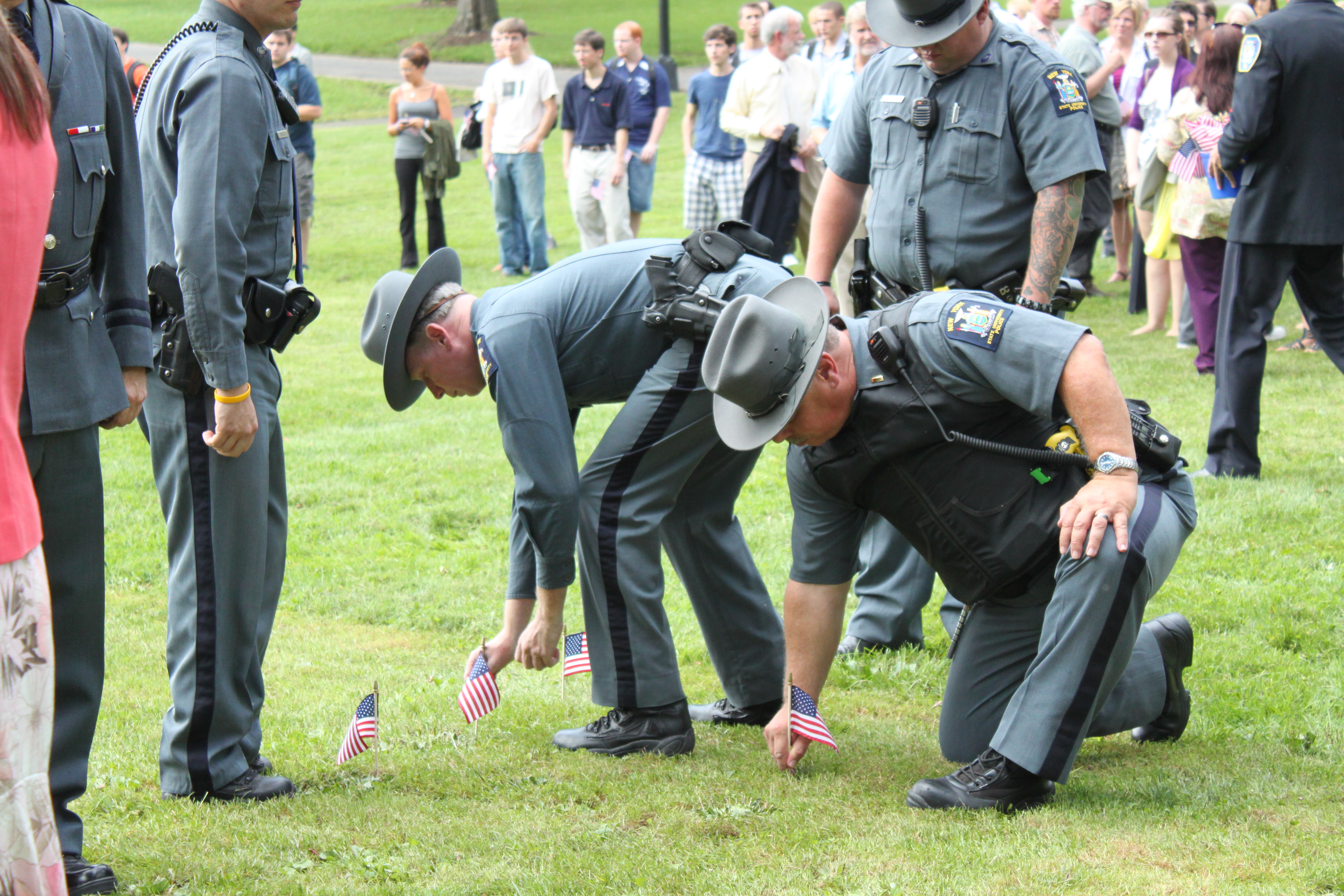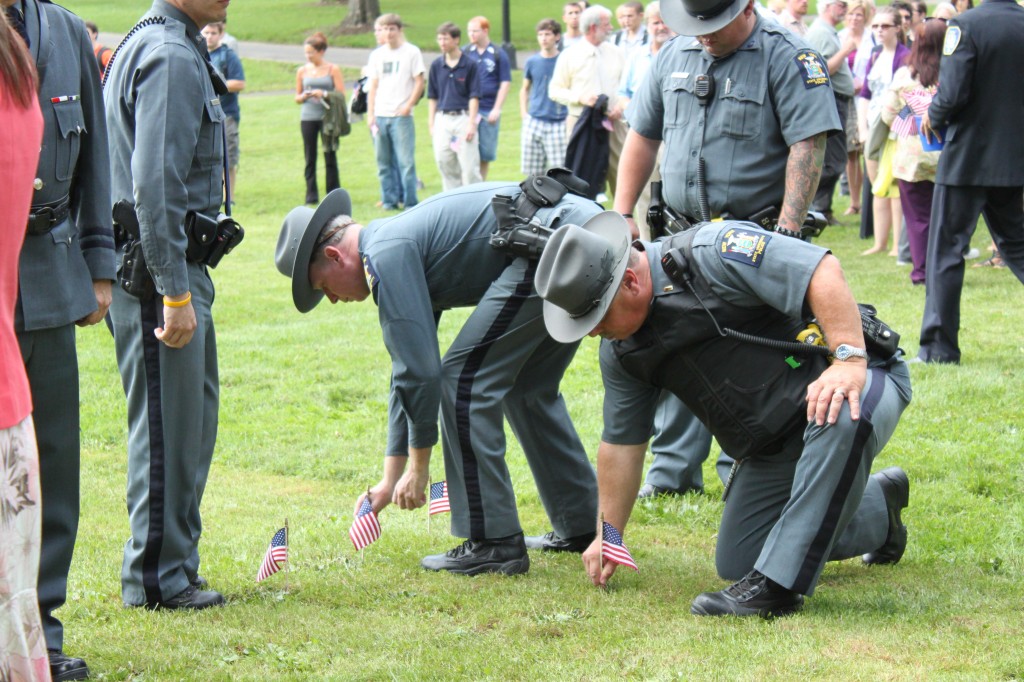
Faculty members at SUNY New Paltz held a panel discussion on Sept. 8 called “Ten Years on…Reflections on 9/11.”
At the Honors Center, Gerald Benjamin, associate vice president for regional engagement and director for the Center for Research, Regional Education and Outreach (CRREO) served as a moderator for a panel of four professors each presenting different perspectives on the aftermath of 9/11.
Interim Director of the Honors Program Patricia Sullivan introduced Benjamin. Each of the four professors were selected because they had “conducted research on the topics they are addressing, spoken about these topics or addressed these topics in their classes,” Sullivan said.
The campus held two events to commemorate the 9/11 anniversary. The panel in the Honors Center addressed issues associated with civil liberties, security, memory and pedagogy.
“This panel, from different perspectives, addresses change in a range of contexts since 9/11,” said Sullivan.
Professor of political science Lewis Brownstein spoke on “Rethinking American Security in the Aftermath of 9/11.” According to Brownstein, America has faced some profound changes in warfare and security since the attacks of 9/11. Since then, the American military has moved more toward covert operations in times of war and crisis.
Brownstein said there has been a “massive expansion in covert forces.” This covert development represented a new trend in modern security in which spy satellites and droids are becoming more common.
Brownstein said in the midst of the loss, pain and concern we need more engagement in improving affairs.
Assistant Professor Hamilton Stapell of the history department spoke on the idea of historical memory. As a European historian, Stapell said he believes that “historical memory has the power to shape current events.” According to the professor, the public’s memory of any event is reshaped over time. He said this happens in the physical and mental sense – the physical occurs in such places as fiction, documentary films, theatre, political discourse, official and unofficial memorials.
According to Stapell, memory is constantly being reconstructed and it can be biased and contested by people. A sense of national unity has been observed by Stapell, as a result of 9/11. There has also been an overall positive emphasis on ideas of sacrifice, honor and collective efforts, some of the good feelings we remember about 9/11.
“Whether we remember something as primarily a success [our wonderful first responders] or a failure [national security and airport security] leads to a certain course of action in the present,” said Stapell.
Nancy Kassop, a political science professor, focused on the political and constitutional consequences of the changes in law following the attack. Kassop believes that the Bush Administration made decisions differently post-9/11 and failed to properly exercise the use of the Constitution.
Kassop spoke of the constitutionality of changes in law after 9/11. According to Kassop, you cannot amend the work of the Constitution and there is no inherent executive power embedded in the document. She said the policy responses to 9/11 seem to be along those lines of a so-called idea of inherent executive power.
The final speaker of the night was Jerry Persaud, assistant professor of communication and media, who presented on the impact of the media of the 9/11 repercussions. His piece entitled, “Pedagogy vs. Patriotism: A Decade of Teaching and Learning about Media,” highlighted how the media covered 9/11 and what it meant to the American public. He presented a series of questions to the audience, one of which explored a student-teacher relationship in teaching 9/11: Is it a teacher’s responsibility to teach the next generation about 9/11?
“Fear and responsibility of open discussions of facts and fictions has changed for the worst,” said Persaud. “Silence is virtue or virtually what some prefer.”

